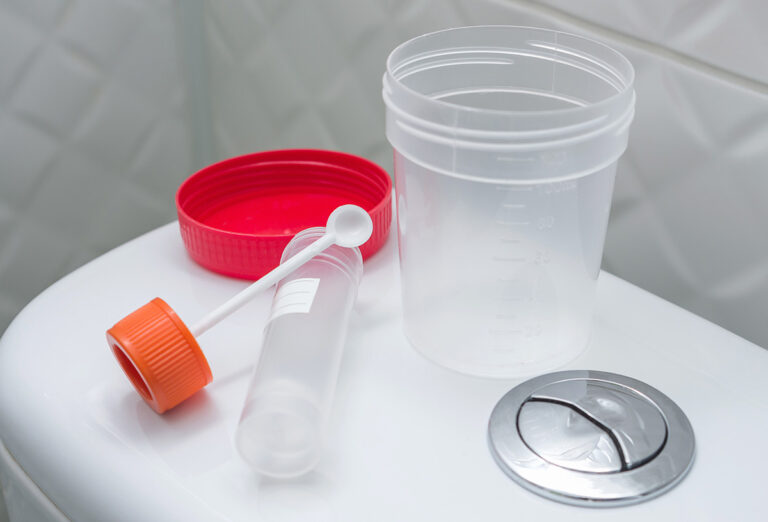When working with clients, nutritional counselors often rely on food journals and symptom tracking. But lab testing can provide even deeper insights. Understanding lab markers may provide insights into nutrient status, digestion, metabolism, and overall wellness.
If you’re new to using labs, it might feel overwhelming. Which tests should you start with? How do you make sense of results? And most importantly, how can you use this information to support your clients?

This article will walk you through the basics of lab testing for nutritional counseling. You’ll learn how to choose the right tests, understand key markers, and use lab data to personalize recommendations.
Note: Nutritional counselors’ scope of practice and the ordering of lab tests vary by state. Consult local regulations to confirm.
The Importance of Lab Testing in Nutritional Counseling
Lab test results provide clear, science-backed insights that may help nutritional counselors move beyond guesswork. By recognizing potential nutrient gaps and imbalances, providers can create more personalized nutrition strategies.
Bridging the Gap Between Symptoms and Solutions
Many clients experience symptoms like fatigue, brain fog, or digestive issues without knowing the root cause. While dietary assessments provide valuable clues, lab testing offers concrete data on nutrient levels, metabolic function, and inflammatory markers.
This information may help counselors provide more tailored dietary and lifestyle recommendations to support overall wellness.
Enhancing Personalized Nutrition Plans
No two clients have the same nutritional needs. A diet that works for one person may not be ideal for another. Lab testing helps counselors tailor recommendations based on individual biochemistry, lifestyle, and health goals.
Whether it’s recognizing patterns related to vitamin D status or fluctuations in blood sugar levels, lab data may help guide more personalized nutrition recommendations.
Measuring Progress and Adjusting Interventions
Tracking changes over time is essential for optimizing client outcomes. Lab tests can serve as benchmarks to help track changes over time in response to dietary and lifestyle adjustments. If nutrient levels aren’t improving or new imbalances emerge, providers can adjust their recommendations accordingly.
This data-driven approach leads to more precise, long-term success for clients.
Whole person care is the future.
Fullscript puts it within reach.
Fullscript puts it within reach.
Join 100,000 providers in changing the way
healthcare is delivered.
Understanding Common Lab Tests for Nutritional Counselors
Lab tests provide valuable insights into a client’s overall health, nutrient status, and metabolic function, helping to create more effective nutrition plans.
Comprehensive Metabolic Panel
The comprehensive metabolic panel (CMP) measures blood sugar, kidney and liver function, and electrolyte balance. It may provide insights into metabolic patterns, hydration status, and factors that can influence nutrient absorption and overall wellness.
Lipid Profile
This test assesses cholesterol levels, including high-density lipoprotein (HDL), low-density lipoprotein (LDL), and triglycerides. It provides insight into heart health, inflammation, and metabolic function, guiding dietary and lifestyle adjustments for better cardiovascular support.
Thyroid Function Tests
Thyroid hormones influence metabolism, energy levels, and digestion. Testing TSH, free T3, and free T4 may provide insights into thyroid function, which plays a role in metabolism and energy levels.
Vitamin D Levels
Vitamin D is essential for bone health, immune function, and mood regulation. Since vitamin D plays a key role in bone and immune health, vitamin D testing may help assess whether additional dietary or lifestyle adjustments are beneficial.
Iron Studies
Iron is important for oxygen transport, energy production, and cognitive function. Testing iron levels, including ferritin and transferrin saturation, may provide insights into iron status, which plays a role in energy and cellular health.
Advanced Nutritional Testing
For a deeper understanding of a client’s health, advanced lab tests can reveal hidden deficiencies, sensitivities, and imbalances that impact overall well-being.
Micronutrient Testing
This test measures vitamin, mineral, and antioxidant levels at a cellular level, offering additional insights beyond standard blood work. It provides a clearer picture of long-term nutrient status and helps fine-tune dietary recommendations.
Food Sensitivity and Allergy Tests
Food sensitivities can cause inflammation, digestive issues, and fatigue. These tests may provide insights into foods that could be associated with digestive discomfort or other individual responses.
Gut Health and Microbiome Analysis
A healthy gut is essential for nutrient absorption, immune function, and digestion. These tests assess bacterial balance, inflammation markers, and the presence of harmful microbes to guide personalized gut-healing protocols.
Hormonal Balance Tests
Hormones regulate metabolism, stress response, and energy levels. Testing cortisol, estrogen, progesterone, and testosterone levels may provide insights into factors influencing weight, mood, and overall well-being.
Understanding Lab Results for Nutritional Counseling
Understanding lab results allows nutritional counselors to make informed recommendations that align with a client’s unique health needs.
Understanding Reference Ranges
Lab reports provide reference ranges, but “normal” values don’t always mean optimal health. It’s important to assess whether a client’s levels fall within an ideal range rather than just meeting minimum requirements.
Identifying Patterns and Imbalances
Rather than looking at individual markers in isolation, counselors should analyze trends across multiple test results. For example, low iron combined with suboptimal thyroid levels may indicate a deeper metabolic issue.
Correlating Lab Results with Client Symptoms
Lab data should always be viewed in the context of a client’s diet, lifestyle, and symptoms. A slightly low B12 level might not seem concerning on paper, but if the client experiences fatigue and brain fog, targeted nutrition support or referral to another licensed provider may be necessary.
Integrating Lab Testing into Your Practice
Lab testing can be a powerful tool for nutritional counselors, helping to create more personalized and effective wellness plans.
By integrating lab results into your practice, you can gain deeper insights into your clients’ health and provide targeted recommendations based on data rather than guesswork.
Here are some key steps to effectively integrate lab testing into your nutritional counseling practice.
1. Identify the Right Tests for Your Clients
Start by considering the most relevant tests based on your client’s symptoms, health goals, and dietary history. Common options include metabolic panels, thyroid function tests, and nutrient status assessments.
2. Partner With a Trusted Lab Provider
Find a reputable lab that offers provider access to testing. Some labs allow you to order tests directly, while others require collaboration with a licensed healthcare provider.
3. Educate Clients on the Benefits of Lab Testing
Many clients may not be familiar with functional lab testing. Explain how these tests can provide insights into nutrient levels, metabolism, and overall wellness to support their health journey.
4. Learn How to Interpret Results
Understanding lab markers is essential for making informed recommendations. Seek out training, reference materials, or mentorship from experienced providers to improve your interpretation skills.
5. Use Results to Create personalized nutrition plans
Once you have lab data, tailor dietary and supplement recommendations to address specific imbalances. For example, low vitamin D levels may indicate a need for more sun exposure or supplementation.
6. Monitor Progress and Adjust as Needed
Retesting at appropriate intervals can help track progress and refine your recommendations over time, ensuring that clients receive ongoing support for optimal health.
7. Confirm Your Scope of Practice
If certain tests or interpretations extend beyond your scope, partner with or refer clients to qualified healthcare professionals. This ensures safe, high-quality care and helps maintain the integrity of your practice.
Getting Started With Labs on Fullscript
Labs on Fullscript provides nutritional counselors with a seamless way to order, interpret, and implement lab testing into their practice. By using labs on Fullscript, providers can access a variety of tests to assess nutrient levels, metabolic function, gut health, and more.
Note: If your jurisdiction doesn’t recognize nutritional counseling as a licensed profession with lab ordering rights, then you typically must access labs through a partnership or collaboration with a licensed medical provider.
Overview of Available Tests
Labs on Fullscript provides a comprehensive selection of lab tests, including:
- Micronutrient panels
- Comprehensive metabolic and lipid panels
- Gut health and microbiome testing
- Hormonal and thyroid testing
How to Order and Review Tests Through Labs on Fullscript
Ordering through Fullscript is straightforward and efficient. Providers can:
- Create a Fullscript provider account and enable labs access: Sign up to access the lab testing catalog.
- Select the right tests: Choose tests based on your client’s symptoms, health concerns, and goals.
- Order the test: Clients will receive instructions for completing the test at home or at a partner lab.
- Review the results: Once available, results can be accessed through your Fullscript account.
- Develop a personalized plan: Use lab insights to guide dietary, lifestyle, and supplement recommendations.
Note: If your jurisdiction doesn’t recognize nutritional counseling as a licensed profession with lab ordering rights, you’ll need to contact a recognized lab or an intermediary service (often called a physician network or lab-management service).
FAQs
Lab testing can be a valuable tool for nutritional counselors, but many providers and clients have questions about its use, accuracy, and benefits. Here are answers to some common concerns.
How often should nutritional lab tests be repeated?
The frequency of testing depends on individual health goals, symptoms, and lab findings. In general:
- Baseline testing is recommended when starting a nutrition plan.
- Follow-up testing every 3–6 months helps track progress and adjust interventions.
- Ongoing monitoring may be necessary for chronic conditions or nutrient deficiencies.
Are there any risks associated with nutritional lab testing?
Most nutritional lab tests, such as blood, urine, and saliva tests, are minimally invasive and low risk. The primary considerations include the following:
- Blood draws may cause minor discomfort or bruising.
- Food sensitivity tests may produce false positives or negatives, requiring additional assessment.
- Over-testing without clinical justification may lead to unnecessary concerns or interventions.
How can I educate skeptical clients of the value of lab testing?
Clients may hesitate due to cost, skepticism, or fear of results. To address concerns:
- Explain the benefits. Lab testing provides objective data to create targeted, personalized nutrition plans.
- Use real-world examples. Share success stories of clients who improved their health through lab-guided interventions.
- Emphasize empowerment. Understanding lab results helps clients take charge of their wellness journey.
What’s the difference between conventional and functional lab ranges?
- Conventional lab ranges focus on detecting disease and are based on population averages.
- Functional lab ranges identify optimal health levels and can detect imbalances before they become clinical issues. For example, a conventional lab may consider a vitamin D level of 30 ng/mL normal, while a functional range would suggest 50–80 ng/mL for optimal health.
Can lab testing replace traditional nutritional assessment methods?
No, lab testing should complement, not replace, traditional assessment methods such as diet history, lifestyle evaluation, and symptom analysis. A holistic approach, combining lab data with clinical observations, leads to the most effective nutrition plans.
Key Takeaways
- Lab testing may help nutritional counselors gain additional insights into nutrient status, metabolic patterns, and food responses to support more personalized nutrition plans.
- Understanding and interpreting lab results in the context of a client’s symptoms and diet allows for more effective, data-driven recommendations and better long-term health outcomes.
- Integrating lab testing into a nutrition practice involves selecting the right tests, partnering with reputable labs, educating clients on the benefits, and using results to tailor dietary and supplement strategies.
Whole person care is the future.
Fullscript puts it within reach.
Fullscript puts it within reach.
Join 100,000 providers in changing the way
healthcare is delivered.





